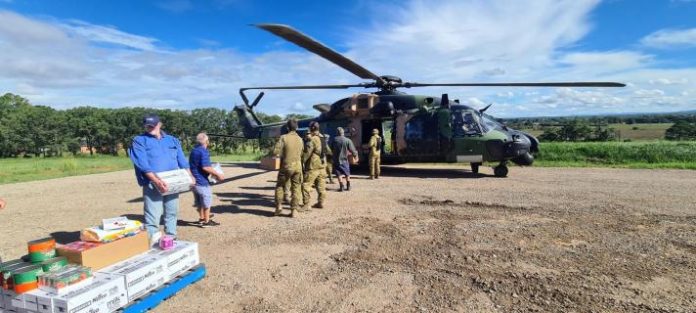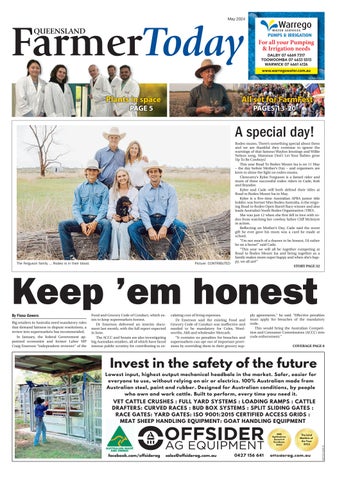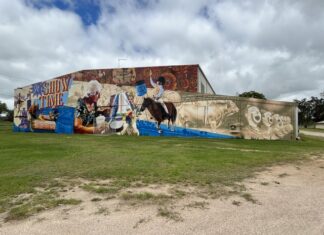* PRECEDE *
Transforming a carpark to a helipad and cold stores to emergency food supplies – how Australia’s largest farmer-owned meat processing co-operative scrambled to help its local community in the wake of the New South Wales flooding disaster.
When floodwaters raged through the Northern Rivers in early 2022, few had seen anything like it. Homes and properties across the region were devastated, lives were lost and thousands of people were displaced and looking for help.
The Casino Food Co-op, which has been operating since 1933, was fortunate to escape damage but some of its farmer members and employees were not so lucky.
CEO Simon Stahl says the Co-op immediately suspended operations to launch a recovery effort.
“We did not need any approvals other than a call to the chairman,” Mr Stahl said.
“Yes, it was going to cost us some money but that wasn’t the consideration. It was about acting and doing.”
Executive group manager (environment, sustainability and innovation) Trevor Moore said the meat processing facility became the centre of the operation.
“There was the speedy transformation of the Co-op’s carpark into a helipad, ready to assist with rescues and food drops and the repurposing of our cold stores and facilities to store and distribute emergency food supplies,” he said.
“It was a team effort, with many employees voluntarily showing up day after day to help put food packs together because they knew they were saving their community.”
Hundreds of staff split into about a dozen work crews, complete with machinery and supplies, to fan out into the community to offer assistance.
“Our skilled tradesmen led teams helping with essential utilities repairs and enabled some families to return to their homes,” Mr Moore said.
“In the frontline, our Pacific Island staff helped evacuate and raise the spirits of locals in the harshest areas of the flood.”
Mr Stahl said he discovered traumatised flood victims were seeking counselling at evacuation centres.
“But there was no one there to help them,” he said.
“So, we had our own counsellors go down because we just knew it made sense that there would be people stressed.”
The Co-op had launched its own in-house counselling program years earlier.
“After realising the difficulties employees were having in accessing community-based psychological care, a pioneering HR team member retrained as a counsellor and began the in-house program,” Mr Moore said.
Mr Moore said the program shows one of the greatest strengths of the co-operative model – a deep connection to the community.
“The Co-op is managed by an elected board of directors, with more than 500 farmer members, which means that member engagement is in the DNA,” he said.
“Having members on the board means the organisation is approachable and supportive of the people in the local area.”
Months after the floodwaters have subsided the recovery work continues, with the Co-op working to address a housing shortage.
“The Co-op has just opened what we believe is the first onsite accommodation at a meatworks in Australia, with 60 beds providing a much-needed solution for our employees,” Mr Moore said.
Mr Stahl said the commitment to the local community is also related to the Co-op’s wider belief in the sustainability of beef production.
“The vast majority of farmers are passionate about good stewardship of the land and maintaining the wellbeing of their herds,” Mr Stahl said.
“The Co-op also acknowledges that sustainability of the business, the industry and its people is just as important and we are constantly looking at new opportunities to support the community and help Australian farming businesses to remain strong.
“This was a great example of all of our people doing what they do best.”









